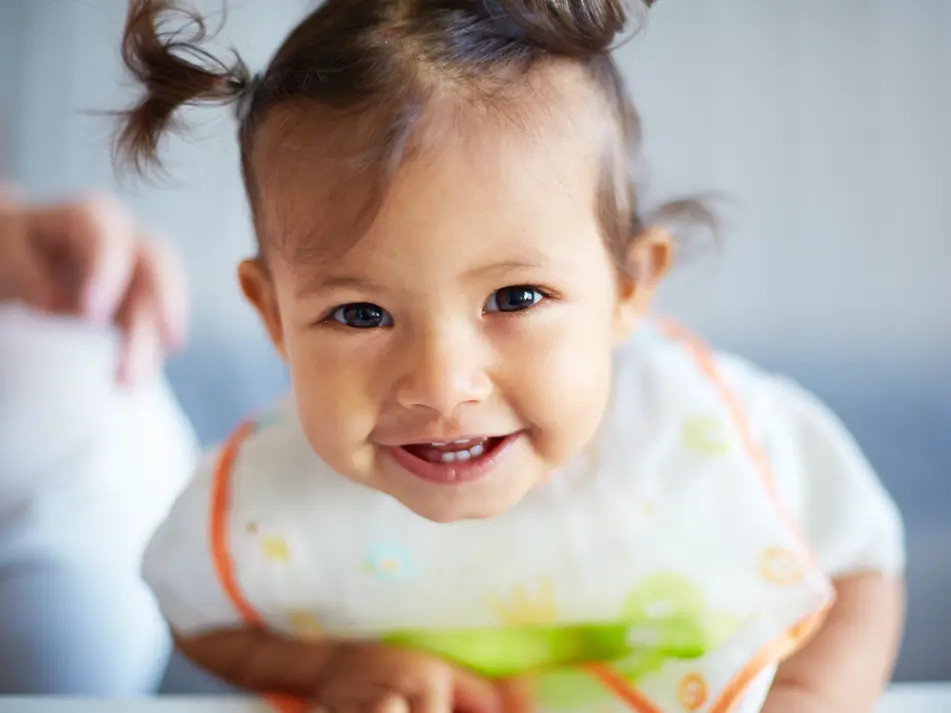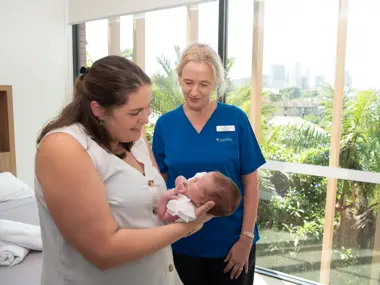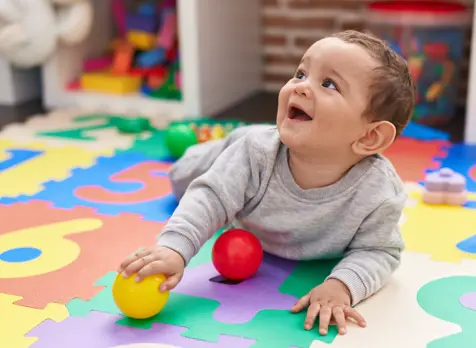Baby Awake Windows & Routines 9 to 12 Months

On this page
This is a time in your baby’s development when they will start walking and talking much more. Babies learn and grow rapidly in their first year and there are many ways you can help stimulate their development.
Your baby’s feed, play sleep cycle is still the basic structure of your daily routine. Try to do them in the same sequence at the same time each day when you can.
It’s always okay to make changes to feeding, play and sleep times to fit in with your baby’s tired signs and your family's activities.
An example of 9 to 10 month old awake windows and routine
-
1
Your baby may still wake at sunrise. Some babies still have an early morning milk feed, while others have discarded this feed (this is purely a personal choice). This is when they may start the day or return to sleep for a little while.
-
2
The average awake window for a 9 - 10 month old is around 2.5 - 3.5 hours playtime and feeding.
Breakfast solids and a milk feed.
Playtime
Morning tea
Sleep: Carefully watch your baby's tired signs. When they're ready, put them down for a nap of 1-2 hours.
-
3
The average awake window for a 9 - 10 month old is around 2.5 - 3.5 hours including playtime and feeding.
Lunch solids and milk feed.
Another playtime.
Sleep: Carefully watch your baby's tired signs. When they're ready, put them down for a nap of 1-1.5 hours.
-
4
The average awake window for a 9 - 10 month old is around 2.5 - 3.5 hours including playtime and feeding.
Afternoon tea (perhaps fruit) and a drink of water.
Playtime.
Dinner solids and a milk feed.
Quiet winddown, bath and bedtime routine
Sleep Two longer sleeps at night of about 6 hours each with 1 - 3 brief awakenings overnight. Your baby may need a milk feed overnight.
An example of 11 to 12 month old awake windows and routine
-
1
Your baby may still wake at sunrise. Some babies still have an early morning milk feed, while others have discarded this feed (this is purely a personal choice). This is when they may start the day or return to sleep for a little while.
-
2
The average awake window for a 11 - 12 month old is around 3 - 4 hours playtime and feeding.
Breakfast solids and a milk feed.
Playtime
Morning tea
Sleep: Carefully watch your baby's tired signs. When they're ready, put them down for a nap of 1-2 hours.
-
3
The average awake window for a 11 - 12 month old is around 3 - 4 hours including playtime and feeding.
Lunch solids and milk feed.
Another playtime.
Sleep: Carefully watch your baby's tired signs. When they're ready, put them down for a nap of 1-1.5 hours.
-
4
The average awake window for a 11 - 12 month old is around 3 - 4 hours including playtime and feeding.
Afternoon tea (perhaps fruit) and a drink of water.
Playtime.
Dinner solids and a milk feed.
Quiet winddown, bath and bedtime routine
Sleep Two longer sleeps at night of about 6 hours each with 1 - 3 brief awakenings overnight. Your baby may need a milk feed overnight.
A 9 to 12 month old baby sleep routine
By nine months old, your baby may be having only two daytime sleeps. However if they become tired later in the afternoon, you may need to add a short third sleep.
When your baby gets older, closer to 14 months, they will often move to one sleep per day. Be guided by their cues to let you know when.
Many babies at this age are still waking at night or may even start waking at night. Night waking due to separation anxiety is a normal developmental stage at this age.
If this happens, reassure your baby and try to re-settle with minimal fuss.
A 9 to 12 month old baby feeding
By now, solids are well established and your baby will be eating three meals a day and perhaps morning and afternoon tea. They can also continue their milk feeds and may be having a milk feed overnight.
A safe and solid high chair is a good investment with straps so they remain safe and secure.
Continue to give your baby cooled boiled water from a cup and limit drinks with a high sugar content such as orange juice.
Learn more about feeding your 8 - 12 month old baby, and get some baby food ideas and recipes
A 9 to 12 month old baby playtime
Now that your baby is getting older, there are so many activities you can do with them. Your 11 month old baby routine could include going to playgroup or your 9 month old might love heading to the park to look at the trees.
Think about activities that encourage movement, learning language and music. It's important to note that at this age, you are their favourite play object. As they become more mobile, make sure your home and play areas are safe
For more fun play ideas, visit 9 - 18 month old baby play.








































